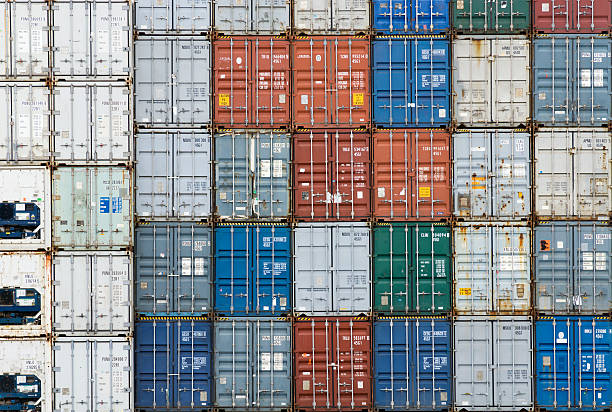
In the interconnected world of international trade, Global Freight Forwarding plays a pivotal role in facilitating the movement of goods across borders. Whether it’s a small package or a large shipment, businesses rely on freight forwarders to navigate the complexities of customs regulations, transportation modes, and logistics networks. In this comprehensive guide, we’ll delve into the nuances of Global Freight Forwarding, exploring its significance, processes involved, key players, challenges, and the future outlook.
Table of Contents
ToggleGlobal Freight Forwarding
Global Freight Forwarding is the coordination and management of the transportation of goods from one location to another, typically across international borders. Freight forwarders act as intermediaries between shippers (importers/exporters) and various transportation services, such as shipping lines, airlines, trucking companies, and railroads. Their expertise lies in optimizing supply chain efficiency, minimizing costs, and ensuring timely delivery.
The Role of Freight Forwarders
Freight forwarders perform a multitude of tasks to ensure the seamless movement of cargo:
- Documentation: Handling necessary paperwork, including customs declarations, bills of lading, and export/import permits.
- Transportation: Arranging the most suitable transportation mode (sea, air, road, or rail) based on factors like cargo type, destination, and urgency.
- Customs Clearance: Navigating complex customs procedures and regulations to expedite clearance and avoid delays.
- Warehousing: Providing storage facilities and inventory management services as required.
- Risk Management: Mitigating risks associated with cargo damage, theft, or regulatory compliance issues.
- Supply Chain Visibility: Offering real-time tracking and visibility solutions to monitor the movement of goods throughout the shipping process.
Key Players in Global Freight Forwarding
The Global Freight Forwarding industry comprises various stakeholders, including:
- Freight Forwarding Companies: These are the core service providers that manage the end-to-end logistics process on behalf of shippers.
- Transportation Carriers: Shipping lines, airlines, trucking companies, and railroads that physically transport the goods.
- Customs Brokers: Specialists in customs clearance procedures and regulations, assisting freight forwarders and shippers in navigating legal requirements.
- Technology Providers: Companies offering freight management software, tracking systems, and digital platforms to streamline operations and enhance visibility.
- Government Agencies: Regulatory bodies responsible for overseeing trade, customs, and transportation policies.
Challenges and Opportunities
While Global Freight Forwarding presents immense opportunities for businesses to expand their reach and access global markets, it also poses several challenges:
- Regulatory Complexity: Navigating diverse regulatory frameworks and compliance requirements across different countries and regions.
- Supply Chain Disruptions: Unforeseen events such as natural disasters, geopolitical tensions, or pandemics can disrupt supply chains and impact freight operations.
- Capacity Constraints: Fluctuations in demand, port congestion, and equipment shortages can lead to capacity constraints and logistics bottlenecks.
- Technology Integration: Embracing digitalization and integrating technology solutions to enhance operational efficiency and customer experience.
Despite these challenges, the Global Freight Forwarding industry is ripe with opportunities for innovation and growth. Advancements in technology, such as blockchain, artificial intelligence, and Internet of Things (IoT), are revolutionizing traditional freight processes, enabling greater visibility, transparency, and collaboration across the supply chain.
Future Outlook
Looking ahead, the Global Freight Forwarding industry is poised for continued evolution and transformation. Key trends shaping its future include:
- Digitalization: Increasing adoption of digital platforms, automated systems, and data analytics to optimize supply chain operations and enhance decision-making.
- Sustainability: Growing emphasis on environmentally friendly practices, fuel-efficient transportation modes, and carbon footprint reduction initiatives.
- E-commerce Boom: The proliferation of e-commerce is driving demand for faster, more flexible freight solutions to meet evolving consumer expectations.
- Global Trade Dynamics: Geopolitical shifts, trade agreements, and economic policies will continue to influence trade patterns and freight flows on a global scale.
In conclusion
Global Freight Forwarding plays a critical role in enabling international trade and commerce, facilitating the movement of goods across borders with efficiency and reliability. While the industry faces various challenges, it also presents abundant opportunities for innovation and growth, driven by technological advancements and evolving market dynamics.
Whether you’re a seasoned importer/exporter or a budding entrepreneur looking to expand into new markets, understanding the fundamentals of Global Freight Forwarding is essential for navigating the complexities of global trade and unlocking new opportunities for business success.
